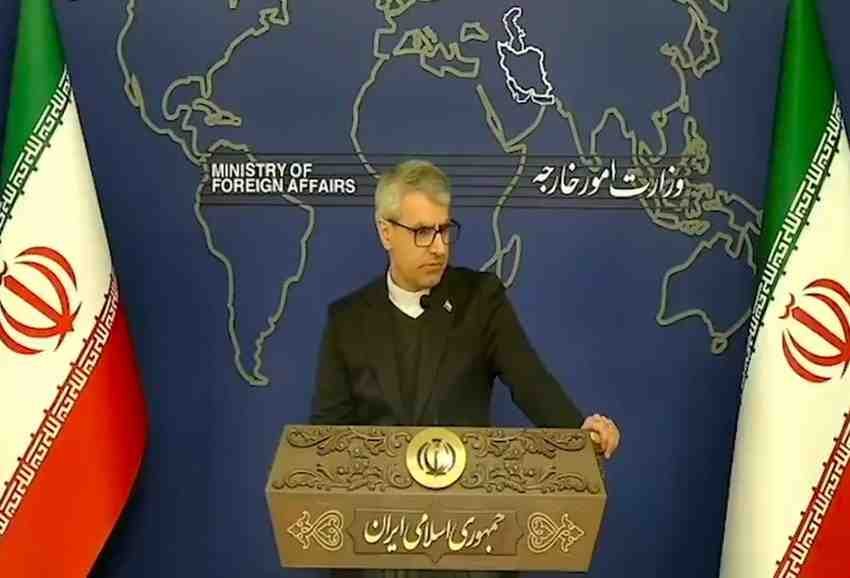In a recent statement, Iran’s Foreign Ministry spokesman Esmaeil Baghaei condemned Israeli Prime Minister Benjamin Netanyahu’s visit to Washington, characterizing him as a “Svengali-like character” with a notorious history of criminal behavior. The remarks were made in response to a question from Press TV regarding Netanyahu’s trip, which has drawn international scrutiny given the ongoing violence in Gaza and the West Bank.
The spokesman emphasized that anyone with common sense should recognize the dangers of being manipulated by a leader with such a controversial past. He described Netanyahu as a “cunning and malicious” figure, accusing him of committing atrocities that have traumatized not only the region but the entire international community.
The spokesman specifically referred to Netanyahu as a “genocidal criminal” wanted by the International Criminal Court (ICC) for alleged genocide, war crimes, and crimes against humanity.
The Iranian official highlighted the gravity of the situation, noting that the actions taken by Israel in Gaza are now being mirrored in the West Bank. He claimed that this represents a continuation of a “genocide campaign” that has been ongoing for over 16 months. The spokesman’s comments reflect Iran’s long-standing opposition to Israeli policies and its support for Palestinian rights.
The timing of Netanyahu’s visit to the United States is particularly significant, according to the Iranian spokesman. He pointed out that the U.S. is home to the United Nations headquarters, where the international convention for the prevention and punishment of genocide was adopted. He urged the international community, including UN member states and the ICC, to take a stand against what he described as Netanyahu’s criminal actions.
The spokesman called for justice and accountability, urging the United Nations Security Council (UNSC) to address Netanyahu’s visit and the implications of his actions in the context of international law. He argued that the international community has a responsibility to confront leaders who engage in behavior that undermines global peace and security.
The Iranian government’s rhetoric reflects a broader narrative within the region, where many view Israel’s military actions as oppressive and unjust. The ongoing conflict has led to significant casualties and displacement among Palestinian civilians, further fueling tensions between Iran and Israel.
As Netanyahu meets with U.S. officials, the Iranian spokesman’s comments serve as a reminder of the deep-seated animosities that persist in the Middle East. The situation remains volatile, with calls for international intervention and accountability growing louder amid the escalating violence.
The Iranian Foreign Ministry’s condemnation of Netanyahu’s visit underscores the complexities of Middle Eastern geopolitics and the challenges of achieving lasting peace in a region marked by conflict and division. The international community’s response to these developments will be closely watched, as calls for justice and accountability continue to resonate in the face of ongoing humanitarian crises.








